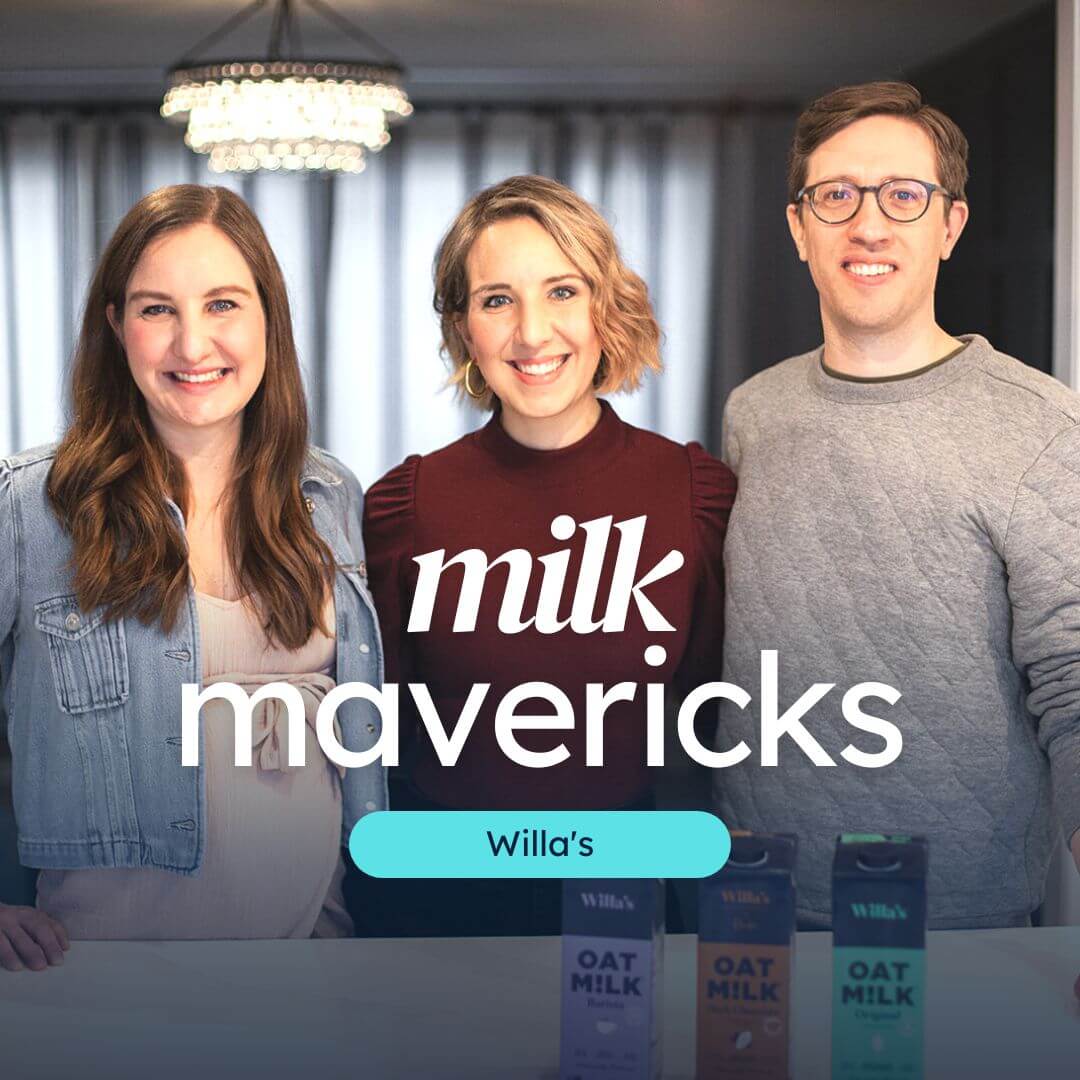I don’t think it should have to be either ‘food tastes good’, or ‘food is nutritional fuel and medicine.’ What’s the point if it doesn’t taste good?
- Christina Dorr Drake, co-founder of Willa’s Kitchen
Sisters Christina Dorr Drake and Elena Dorr Zienda were tired of conventional plant-based milks full of sugar and artificial ingredients.
So they set out on a mission to make something healthier yet packed with flavor.
You might think plant-based milks are a newfangled invention in response to the advent of veganism, but on the contrary, some plant milks have been around for generations.
Dorr and Dorr’s grandma Willa had left behind her own oat milk recipe, and it was surprisingly delicious.
The sisters started with that recipe, and so their own brand was born.
We had a fascinating chat with Christina Dorr Drake and got to learn all about:
- The mission and story behind Willa’s
- The issues surrounding conventional oat milks and how Willa’s is changing the game,
- The importance of soil health
- And so much more
Unsavory Truths – and Solutions
The Dorr sisters stick firmly by their conviction that anything they sell must align with their values and live up to their Grandma Willa’s name.
They found that the way oat milks and other plant milks are generally made contrasted heavily with their values;.
As they began their journey with Willa’s, the Dorr sisters kept uncovering more industry secrets that didn’t sit well with them.
Many other oat milk brands tend to be very sweet because most manufacturers discard the healthy parts of the oat that contain protein and fiber. Then, they add a bunch of sugar.
As a result, although the milk is plant-based, it also has a high glycemic index and little nutritional value.
On top of that, discarding parts of the oat results in a huge amount of food waste when done at scale.
Food waste, Dorr Drake informed us, is unfortunately one of the leading causes of greenhouse gas emissions and climate change.
The food system as a whole “is responsible for 30% of manmade greenhouse gas emissions”.
It was important to the Dorrs to respect the integrity of the oat, including the flavor and nutritional value, as well as not contribute to food waste or climate change.
Therefore, they and the other folks at Willa’s figured out how to make oat milk using the whole oat.
This also means their oat milk is lower in sugars while maintaining all that good, healthy protein and prebiotic fiber found in whole oats.
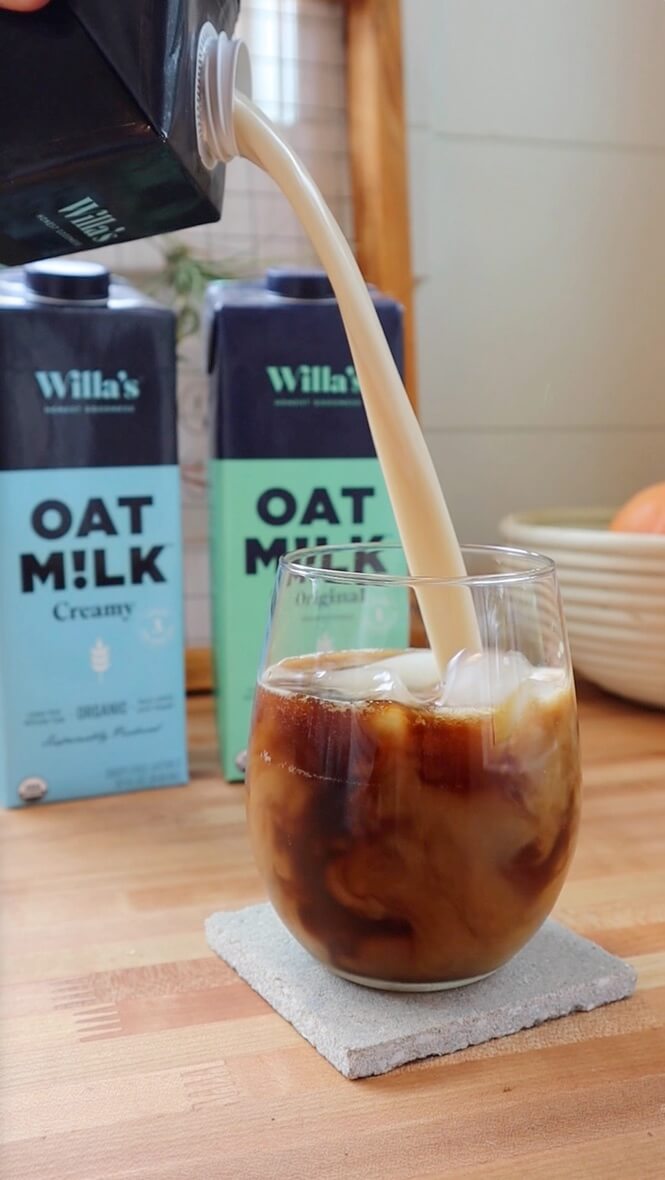
Dorr Drake explained that prebiotic fiber feeds the beneficial bacteria in your gut.
In doing so, it promotes healthy digestion and is even good for mental health.
In fact, one cup of Willa’s unsweetened original oat milk blend contains two grams of fiber, while the dark chocolate has three grams.
Both of these also have protein–four and five grams respectively.
Because they use whole and organic oats, Willa’s is one of the most nutritious AND sustainable plant-based milks on the market.
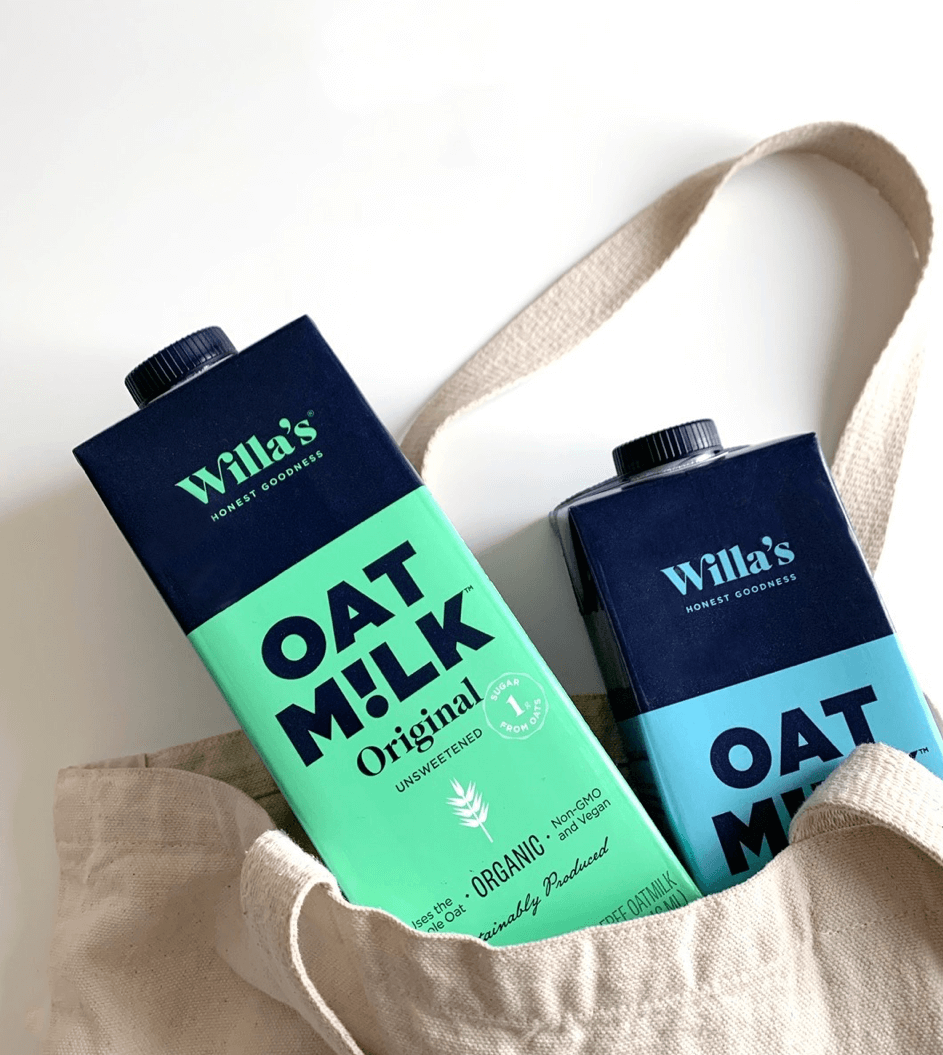
Unfortunately, one of the reasons conventional oat milk tastes good is because they don’t use the whole oat.
Making a tasty product using the whole oat is no easy task, but Willa’s manages to score full marks for both flavor and texture without sacrificing nutritional benefits or contributing to food waste.
How, exactly, they make delicious, creamy milk using the whole oat is a “trade secret”, Dorr Drake told us with a sly smile.
What we did manage to discover is that somehow, after much trial and error, their team figured out a way to mill the whole oat and get a rich, smooth taste.
They also use real ingredients like sea salt and vanilla in place of hard-to-pronounce chemicals.
Customers often try Willa’s initially because of its health and environmental benefits–but surveys show that the reason they stick with it long-term is actually for the taste.
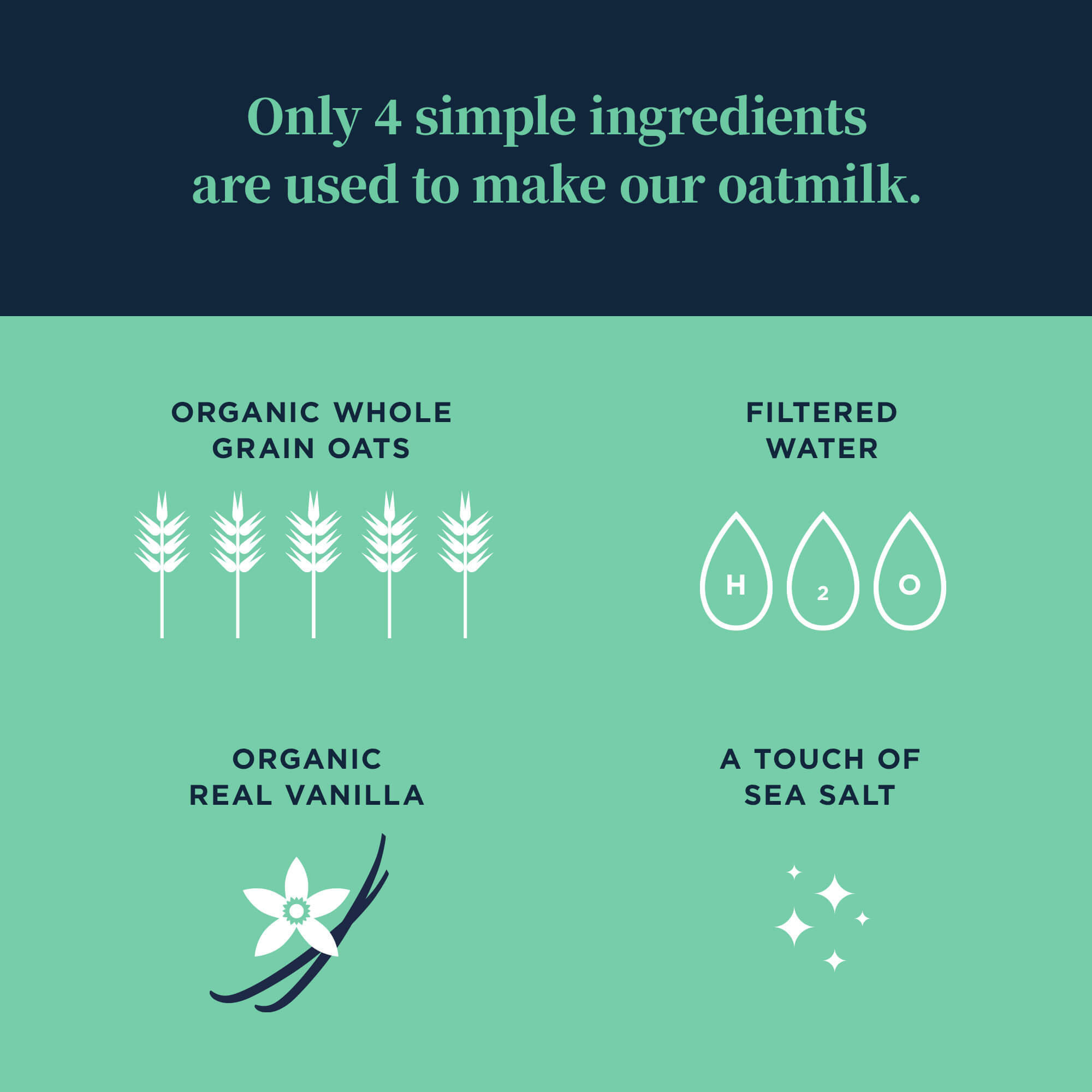
Quality Oat Milk Starts From The Soil
Another major issue with conventional oat milks is that the way they’re grown degrades the soil.
Christina Dorr Drake’s own research and work background led her to discover the importance of soil health.
Once she was clued in, she couldn’t unsee what she had found.
The soil, she explained, has its own microbiome, much like the human gut.
When it’s healthy, it’s full of a rich diversity of microorganisms which contribute to its health and to the nutritional content of whatever grows in it.
However, most conventionally-grown crops (including oats) are sprayed with pesticides to increase yields. Unfortunately, those pesticides are devastating to soil health and to human health.
One prominent chemical found in pesticides, called Glyphosate, has even been linked to cancer in humans.
As a cancer survivor herself, Dorr Drake was adamant about the choice to use organic oats even though they’re significantly more expensive.
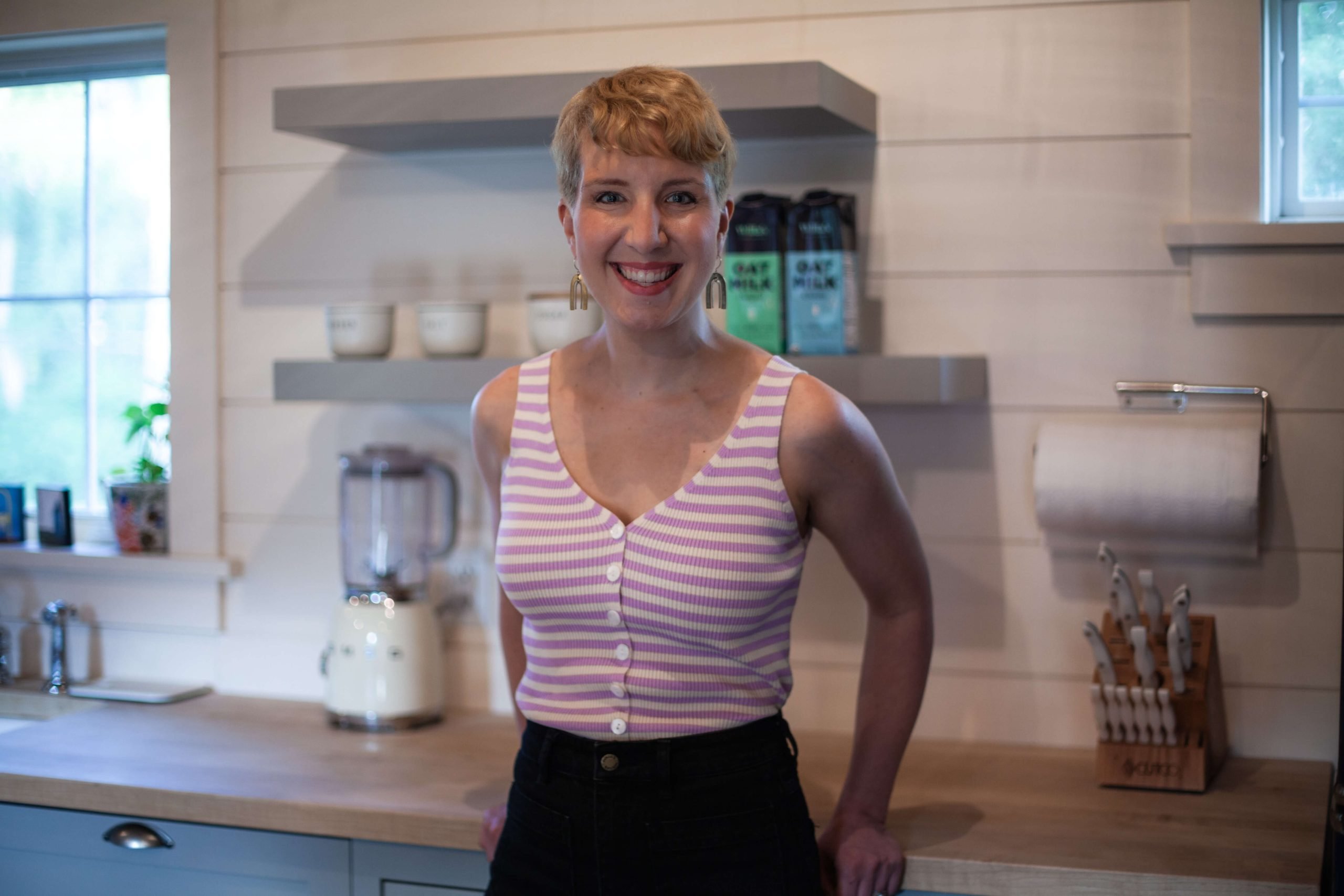
As a result, Willa’s oat milks are organic, pesticide and glyphosate-free, and grown in healthier soil with a more diverse microbiome and more nutrients for the oats to soak up.
Furthermore, the majority of oat and plant milk brands also source ingredients from far away and/or process their products overseas, further contributing to greenhouse gas emissions by way of the transport necessary for this process.
The Dorr sisters decided early on to source their oats from nearby their base in New York in order to cut down on climate impacts.
As an added benefit, oats actually help to combat climate change by sequestering carbon from the atmosphere and putting it back in the ground where it belongs.
Changing the Game
Because Willa’s sets themselves apart from other players in the market with their environment and health-friendly practices, one might assume that they enjoy being unique in this sense because it helps them stay competitive.
However, that couldn’t be farther from the truth.
Dorr Drake told us that “sometimes [they] say they’re on a mission to change the plant based milk category for good and forever”.
They would love to lead change in this category, spearheading a campaign for healthier and more environmentally-friendly plant-based milks.
Rather than viewing it as competition, Willa’s celebrates the idea of other brands starting to change their approaches because they’d “see that as a good thing for the planet and for people’s health”.
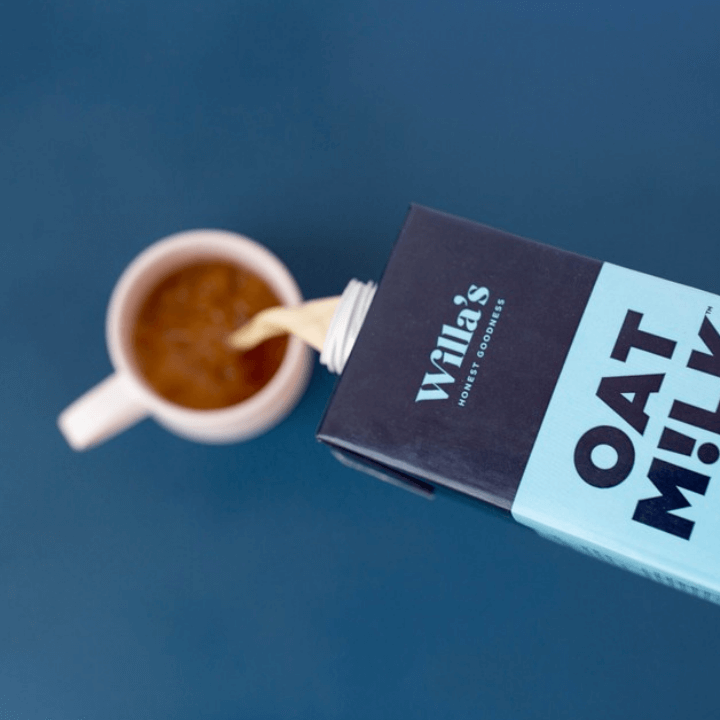
Blindsided in 2020
Like many other businesses, Willa’s faced unprecedented challenges when the pandemic struck.
At that time, they were still pre-launch. They’d been gearing up to get their oat milk into offices, coffee shops, and coworking spaces in New York in April of 2020…but we all know what happened instead.
They were forced to shelve that plan and rapidly shift gears. Instead, they redirected their efforts towards website sales, Amazon, and getting into retail.
Not only were their efforts successful, they came with a few important takeaways.
Through these challenges, Dorr Drake learned that:
Everything is figure-out-able. The more challenges you overcome, the more confident you become the next time you meet a new challenge.
She explained that she “used to think that a good day [for them] was driven by sales or a new account, but now she looks at the best days as days when [they] worked as a team to overcome challenges and turn them into opportunities”.
Nowadays they ship all over the USA and are continually finding their way into new retail stores.
However, the pandemic was not the only difficulty that needed to be reckoned with.
Christina Dorr Drake had to deal with an additional challenge at the same time: She was totally blindsided with a breast cancer diagnosis in January of 2020.
Thankfully, she caught it at an early stage, and was even able to work full time through chemo, radiation, and a minor surgery. She believes that her dietary and lifestyle practices helped make this possible.
“I think a big part of why I was able to work full time to build Willa’s through all of that is because I was always a health nut, but I really really learned that I needed to prioritize my health if I wanted to take an active role in my health. So I ate mostly plant based, cut out most dairy, exercised every day, and really focused on things that made my body feel the best. I feel very fortunate that by the time I went in for surgery, the cancer was almost all gone.”
Dorr Drake’s story struck us because it shows that her own decisions around health truly reflect the values of her company, and it sets an inspiring example of what healthy choices can sometimes do.
What’s Next for Willa’s?
Willa’s is continually trying novel recipes and coming out with new products. On deck is their chocolate oat milk, which customers are particularly excited about.
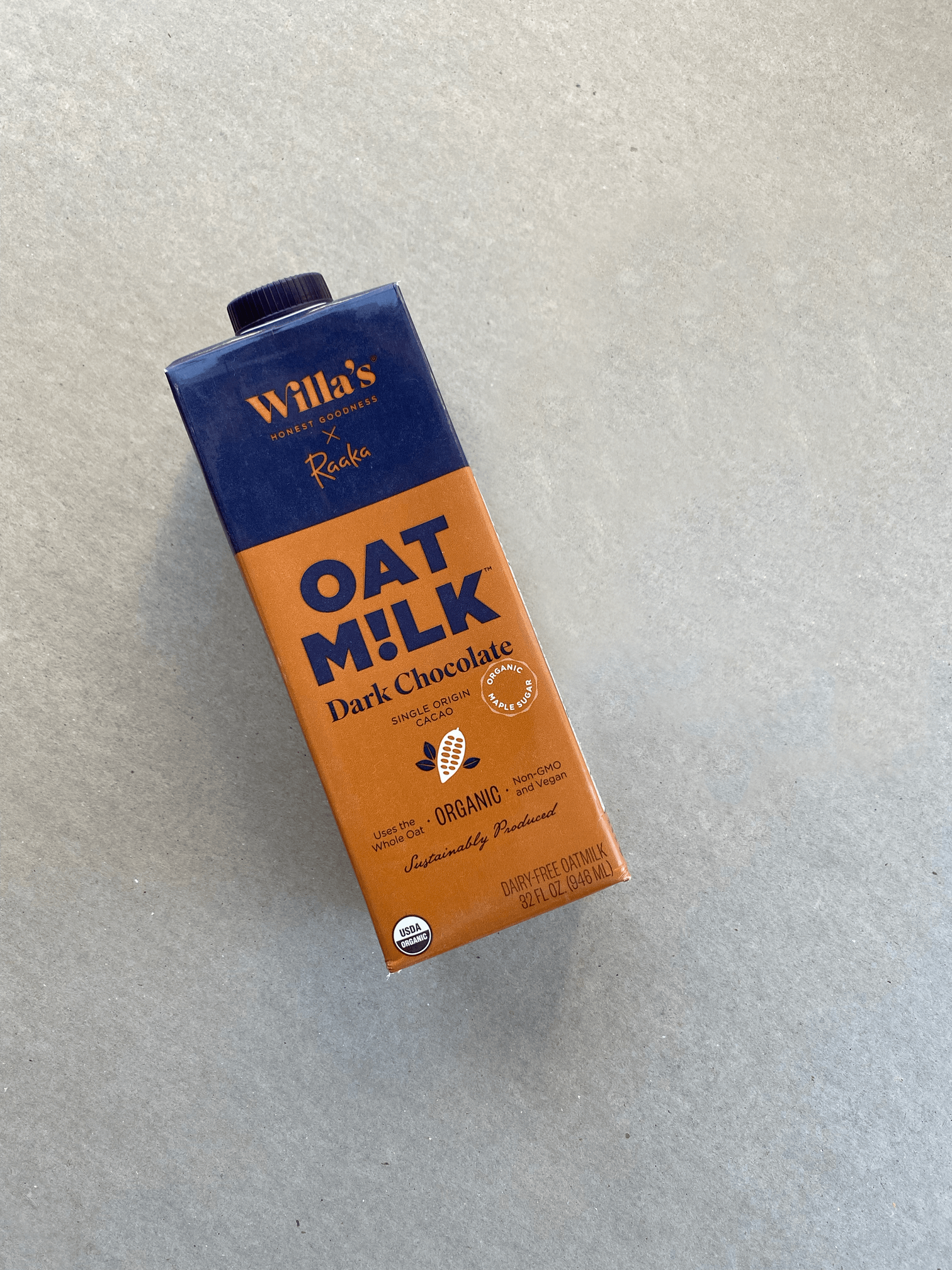
It contains Peruvian cacao and a dash of maple sugar. It’s so decadent that it has almost a brownie-like quality.
Using real cacao is not as simple as it seems–nor as common.
Most chocolate plant-based milks are packed with sugar and artificial ingredients and devoid of nutritional density. “That really surprised us, because real raw cacao has a lot of health benefits”, Dorr Drake explained.
Cacao is packed with flavanols that help with all kinds of ailments and have myriad positive effects on health, including:
- Decreasing the risk of heart failure by ⅓
- Combating anxiety
- Balancing the immune system
- Improving brain function
- Boosting athletic performance
However, real raw cacao is very expensive to source, which is why more brands don’t use it.
Willa’s sources their single-origin Raaka Peruvian cacao from indigenous farmer cooperatives.
The maple sugar they add to it has a lower glycemic index than white sugar, which means it doesn’t cause that strong spike and crash effect.
It’s also environmentally-friendly in that it’s sourced nearby, from maple that grows in parts of Vermont and the east coast.
Dorr Drake described the new chocolate oat milk as as an “adult chocolate milk”.
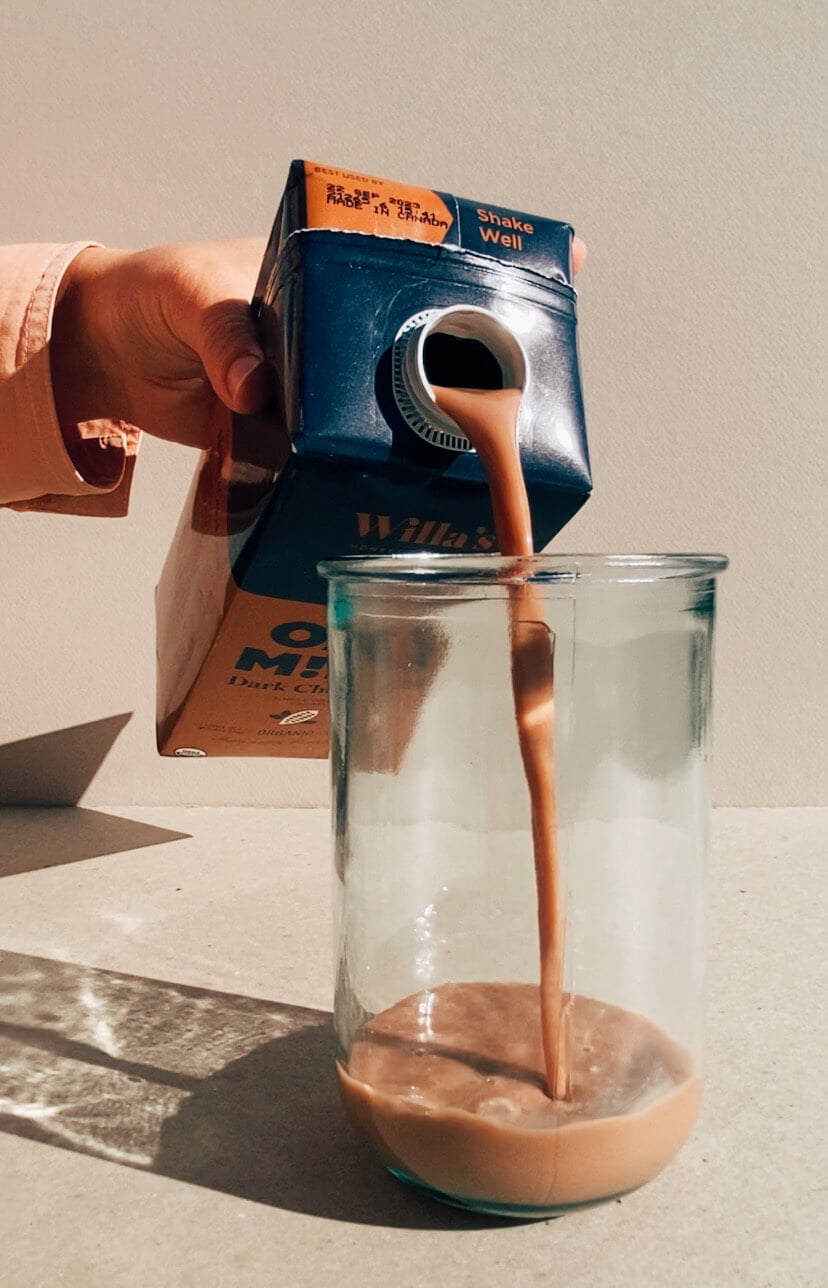
The Takeaway
It’s all too easy to fall into the false dichotomies of thinking that delicious treats are probably unhealthy and that successful businesses are necessarily unethical.
After all, examples are all around us.
However, the Dorr sisters believe that:
You can create a business that is purpose-driven and lives up to its purpose AND is also a healthy business with healthy human and economic margins.
Just as food and drink can taste good and also be nutritious, economic sustainability and ethical business can go hand-in-hand. Willa’s is proof of both.

